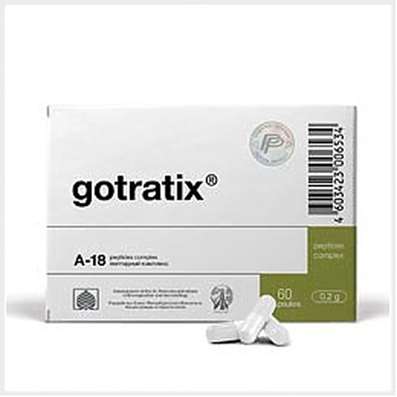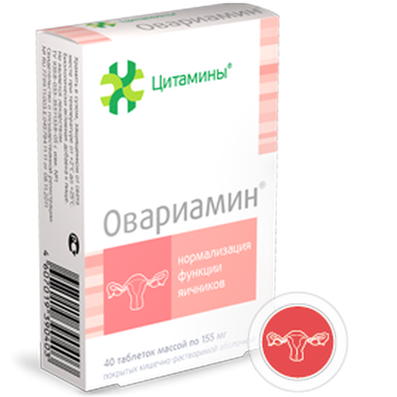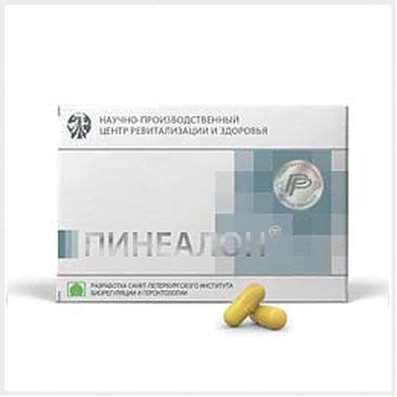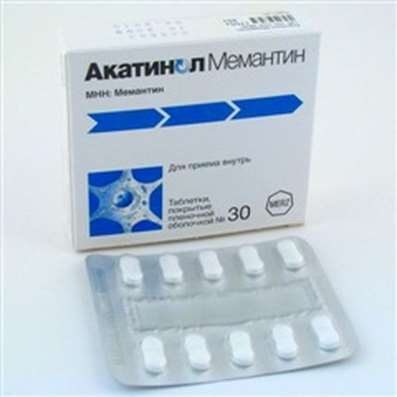The rapeutic use of banned drugs
21 Dec 2016
Considering a dope problem in modern sport, it is impossible to ignore one extremely important both in medical, and in the legal and moral and ethical relation a question. It is a problem of use of the drugs carried by WADA to doping with the medical purpose.
First of all, it must be kept in mind that all substances included in WADA in the list of forbidden can be divided into two groups:
- the substances which are in the different countries medicines or components of medicines is a most part of the forbidden substances;
- the substances which don't have the legal status of medical supplies.
Certainly, the substances relating to the second group can't be under no circumstances used as medicines not only in sports medicine, but also in general in medical practice in any civilized country. It is possible to give as examples, for example, a series of the anabolic steroids which are legally drugs of veterinary medicine (finadject, finaplics, chekua drops) or design steroids (notorious tetrahydrogestrinon), Testosteron-Depotum metabolite epitestosteron, synthetic anabolic steroid zeranol (forbidden even in livestock production and therefore used in this sphere it is illegal), a number very different in chemical structure and biological activity of the substances carried to "stimulators" (Amphepramonum, amifenazol, amfetaminit, benzphetamin, dimethylamphetaminum, ethylamphetamin, geptaminol, izometepten, levmetamfetamin, D-Metamphetaminum, metilendiocsiamfetamin, metilendiocsimetamfetamin, r-Methylamphetaminum, parahydroxyamphetamine, Pemolinum, tuaminogeptan, etc.), a series of the narcotic analgetik excluded from all Pharmacopoeias (heroin, beta gidroksi-3-methylfentanylum, desomorphine, etorfin, thiofentanylum, etc.) and some other substances. Please pay attention to Kartalaks.
However the majority of the forbidden substances should be referred to the first group — i.e. to absolutely legal pharmacological drugs which are officially used in medicine for treatment, prophylaxis and diagnostics of diseases at the person. Indications to a clinical use of that or other drug accurately make a reservation in the Instruction approved by the representative on that an organ of the state which allowed its use in the territory. At the same time some of drugs, the carried WADA to forbidden, are applied, according to the approved Instructions, i.e. emergency, situations, according to vital indications. It is possible to give use of narcotic analgetik at the persistent pains bound to injuries or a myocardial infarction as examples, at unrestrained (posing hazard to life) tussis, at a strong dyspnea (heart failure), at a fluid lungs i.e. when non-narcotic analgetik are noneffective. Drugs of glucocorticoids are widely used at an acute hormonal failure of a cortex of adrenals, hemolitic anemia, glomerulonephritis, acute pancreatitis, hepatitis; in connection with antishock effect glucocorticoids prescribe for prophylaxis and treatment of shock (posttraumatic, operational, toxic, anaphylactic, burn, cardiogenic, etc.). Among indications to use of adrenergic agents in clinical practice medical emergencies, in particular, acute hypotensions of various parentage (a collapse, shock, an overdosage of ganglio blocator, poisonings with oppression of the sosudodvigagelny center, intoxication), a cardiac standstill, a hypoglycemic coma, bronchial asthma, anaphylactic shock, an allergic edema and other allergic reactions take place too. As for r-adrenoblockers, they were framed (and are now used) as remedies for coronary heart disease (stenocardia, a myocardial infarction), tachyarrhythmias, complex treatment of hypertensia.
Athletes, as well as all people, can need treatment which requires reception of medical supplies. If the substances necessary for treatment are dope, and are forbidden according to anti-doping rules, nevertheless, the right for their application can be granted to the athlete. Such procedure is called "therapeutic use" (TUE). In each case it is necessary to get separate permission for TUE.
Permission can be got for TUE if:
- the athlete is threatened by serious deterioration in the state of health without reception of any banned drug;
- therapeutic use of the banned drug won't cause the considerable improving of results at competitions;
- the alternative to use of this medicine or method (from among resolved) doesn't exist.
WADA developed the International standard for therapeutic use of the forbidden substances. According to this standard all international federations and the national anti-doping agencies are obliged to accept from the athlete needing treatment, a request for therapeutic use. In Ukraine request is reviewed by the relevant sporting federation or Committee on therapeutic use (KTI) which consists of independent experts-physicians.
Order of submission of a request for therapeutic use following.
The athlete of the international level or the participant of the international competitions shall give a request for therapeutic use to the international federation by the form of sport. It can be done through the Ukrainian federation. Other athletes (who aren't competing at the international competitions) shall send an inquiry to KTI. Athletes shouldn't send an inquiry for therapeutic use to more than one organization. Athletes can't send an inquiry directly to WADA.
During large international competitions special protocols on therapeutic use can become effective. Therefore participants of such competitions shall clarify in the sporting federation or KTI whether there are any changes in the standard protocol on therapeutic use during the forthcoming competitions.
At the same time, during action of permission to TUE, KTI can initiate at any time review of the decision on issue of permission.
WADA through Committee on therapeutic use has the right to check any permission to TUE issued by federation or KTI and, respectively, to cancel any decision. Besides, athletes who sent an inquiry for TUE to federation and were refused from there can send the decision to Committee on therapeutic use of WADA. If WADA decides that the refusal in permission to TUE didn't conform to the international standard, the Agency can cancel the decision of federation or anti-doping organization.
If WADA rejected the decision on issue of permission to TUE, the athlete or his representatives can submit the appeal in the International sports arbitration in Lausanne for removal of the final decision.
Practically the procedure of giving of a request for TUE looks as follows. The athlete shall:
- to contact the sports federation (or directly KTI) and to receive a form of application for TUE.
- to send the form filled with the doctor with the signature and with the application of necessary documents to the international federation and KTI.
It is necessary to remember that the request for TUE needs to be sent at least in 21 days prior to the competitions. It is important to attach data of physical examinations, the statement from the medical record or the clinical record to the request. The request needs to be filled with printing letters. Earlier two forms of requests worked: reduced (for beta 2 - adrenomimetics and glucocorticosteroids) and complete. According to the International standard on therapeutic use of 2009 the reduced form of requests is cancelled also when using glucocorticosteroids by intra articulate, circumarticular, intra copular, the epidural and intracutaneous injections, and also in the form of inhalations it is necessary to provide the declaration on use through the ADAMS system. In case of application of glucocorticosteroids orally, intravenously or it is intramuscularly necessary to send a request with the application all corresponding documentation as it is stated above. Locally applied glyukokortikosteroid medicines (applied on skin, including ionoforez and fonoforez, and also drops in ears, a nose and eyes) aren't forbidden, and their application doesn't require execution of the declaration on application. Application beta 2 - adrenomimetics requires presence of permission to TUE.
The athlete can begin treatment only after obtaining the written permission for the relevant organization (unless the urgent medical intervention at an acute state is required, then treating of the application backdating is allowed). Besides enough states, typical for athletes, it is possible to give traumatic shock or heliosis as examples.
It is known that injuries of various localization and severity are characteristic of different types of sport. Severe injuries naturally are followed by development of traumatic shock the serious pathological process developing in response to a trauma and concerning practically all systems of an organism, first of all, of the blood circulatory system. Are the cornerstone of a pathogenesis of shock: a hemodynamic factor (decrease of volume of the circulating blood as a result of its effluence from a vascular bed and deposition), an anemic factor, pain and disturbance of integrity of osteal educations. Prophylaxis and treatment of traumatic shock represents very difficult complex of medical actions depending substantially on shock degree, but anyway providing the emergency use of drugs, narcotic analgetik and drugs of glucocorticoids (all together or selectively depending on a concrete clinical situation). As other example of state, typical for sports practice, demanding use of banned drugs (diuretics, most often — Furosemidum), the heliosis which is followed by a fluid lungs can serve; at the same time the refusal of use of diuretics often frames threat for the patient's life.
If in the course of rendering an urgent medical care the forbidden substance was applied, then the situation is considered as follows. The international standard on therapeutic use allows use of the forbidden substances for treatment before permission to their use was got. Also, besides this situation, use of the forbidden substances until obtaining permission in case of absence at the athlete is allowed, owing to exceptional circumstances, sufficient time or an opportunity to give inquiry, and at KTI to review request, and also in cases of use by the athlete not of the international level (or not speaking at the international sports event if it is stipulated by the international federation) formoterola, Salbutamolum, a salmeterol and terbutalin in the form of inhalations for the purpose of treatment.
In permission the dosage, frequency and a method of application of specific medicine which the athlete is obliged to execute accurately are specified therapeutic use. In case of need changes of a method, frequency of application or a dosage need to be given a new request. The athlete shall fulfill strictly the requirements specified in permission TUE. Information on permission on TUE given by the international federation or KTI goes to WADA which can revise the decision if it doesn't conform to the international TUE standard.
Request and documents are considered within 30 days therefore the athlete shall direct to the anti-doping organization these materials in 30 days until when it needs permission.
Summing up the results, it is necessary to mark that in general all procedure differs in bulkiness and the expressed subjectivity element. First, this element is present at determination of the diagnosis — always in case of desire it is possible to refer that there are no results of any laboratory or instrumental method that allows reading the diagnosis finalized and confirmed. Secondly, the question of efficiency and feasibility of use of these or those medicines for treatment of specific pathology and at the specific patient; however common sense prompts that the doctor standing at a bed of the specific patient can decide more correctly on these questions, than certain "members of KTI": even if they are also qualified specialists in the field of sporting medicine, but they didn't watch the patient and are familiar with this clinical case only in absentia, and, besides, isn't excluded that they can not have generally experience of treatment of this specific pathology. In other words, receiving permission on TUE substantially depends on a subjective factor. It equally also belongs to application for TUE backdating according to the emergency indications rescue of human life can be qualified as doping with all that it implies both for the doctor, and for the athlete.
All this is in a conflict as with common sense and the moral principles, and with the legal regulations regulating activities of health workers. Absolutely absurdly and immorally approach according to which the doctor who saved human life can be accused of any inadmissible actions looks! Besides, the doctor who didn't do everything possible for salvation of life of the patient is a perjurer because before the medical career he swore a Hippocratic Oath! As for legal aspects, non-rendering of medical care by the health worker is illegal act in any civilized country. For example, legal acts of Ukraine recognize as a crime object life and health of the person, and also determine an order of accomplishment by health and pharmaceutical workers of the professional obligations.
According to the current legislation of Ukraine, in the professional activity the expert doctor bears administrative and criminal responsibility for violation of provisions of "Bases of the legislation of Ukraine about health protection". Types of the medical responsibility and objects around which there are medical responsibility relations can be provided as follows:
The "Bases" stated above... provide, in particular, responsibility for failure to provide medical care (Art. 39) and violation of conditions of medical intervention (Art. 42 — 43). These articles are duplicated in the Criminal code of Ukraine: Art. 136 — non-rendering of the help to the person which is in a condition, life-threatening; Art. 137 — improper execution of obligations concerning protection of life and health of children; Art. 139 — non-rendering of the help to the patient with the health worker; Art. 140 — inadequate accomplishment of professional obligations by the health or pharmaceutical worker. Responsibility under the specified articles really comes by determination of court according to articles of the Criminal code of Ukraine. Of course, similar articles are present also at the penal legislation of any other civilized country.
However even when therapeutic use of doping medicine isn't emergency, officially certain term of consideration of the application (30 days) not always is accepted from the point of view of medical process and common sense.

 Cart
Cart





